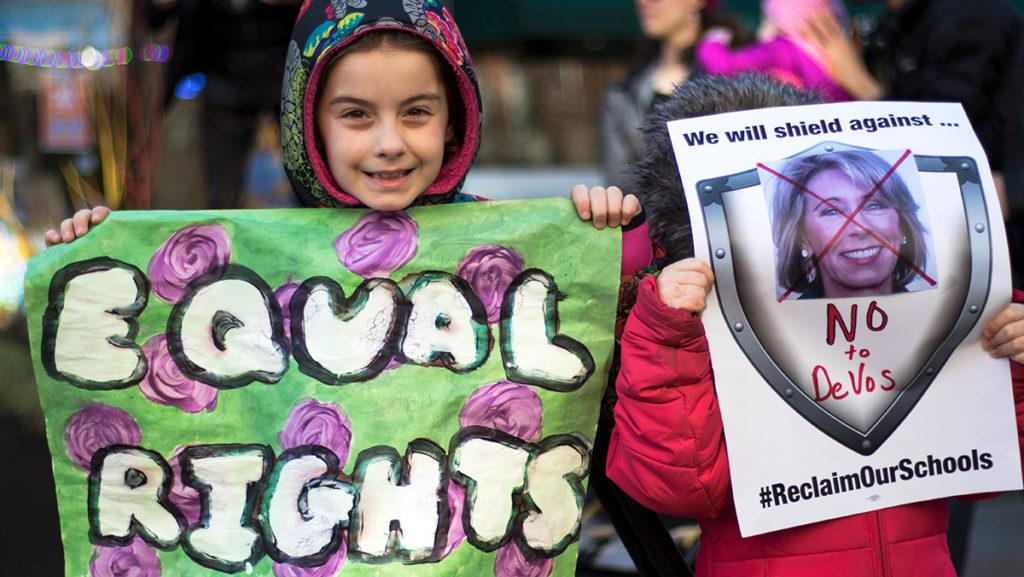Editor’s note: The following guest commentary was originally a speech presented at the Women’s March on Ithaca on Jan. 21 on The Commons.
In this year of the woman, and in light of so many comments from the new president, we can’t forget about girls.
We can’t forget about any young people, especially those who are members of marginalized groups, and how they are affected by the shift in our political climate.
Anyone who works with kids, who has kids, and maybe even has been a kid knows that children know what’s going on. You can see it when one of my amazing writers at the library writes a reflection about rushing to the bus stop on the morning of November 9 because all she wanted to do was hug her best friend and cry together.
It’s the sixth grader who I call my sister Skyping me the day after the election, worried for not only her future, but also that of the many children of undocumented immigrants with whom she goes to middle school.
It’s in the young people who realize when they are 4 or 7 or 17 that the sex they were born with doesn’t match the gender they feel. It’s that with our new president in the White House, they might not feel as safe to tell their parents and friends the weight of what they’re holding. That’s a tremendous loss to all of us.
It’s a friend’s mom’s students who are desperately afraid of being deported because they’re from a country they’ve heard this new president doesn’t like. It’s their fear that they are not a part of their American families when only the opposite could be true.
It’s the obsessions that girls develop as young as third grade, minds filled with calorie counts and exercise and how to best control their bodies in a world that seldom gives them autonomy. This is only to be magnified by a leader whose biggest insult of brilliant women is often their body size or the clothes they’re wearing.
Many of us here, the college students who make up half the population of Ithaca, are also still so-called young people. Many of us were shattered by the results of the first election we could vote in. It’s been a pretty scary 20 years to grow up in the United States. This moment, though, is too significant for our hope to disappear, even if it’s waning.
So if you’re any kind of self-proclaimed young person, I have two challenges for you: Question everything and practice compassion.
Toxic rhetoric can only tear us apart if we don’t tear it apart first. If you’re one of the awesome kids here, don’t hesitate to correct unkindness or to ask questions about things that don’t make sense.
You have the enormous responsibility to tell grownups when they’re being mean or unfair. Sometimes the adults who love you most forget that they’re making the world less good for you, even when all they want to do is make it better.
If you’re a college student like I am, don’t fall into apathy and inaction. Take classes that further your education about systems of oppression, especially if they seem unrelated to your major. Educating yourself is one of the best ways to become a better ally to the marginalized groups you’re not a part of. There are also always opportunities to organize in Ithaca, as well as ways to connect with this community’s incredible kids.
If you’re an adult, listen to children. Listen to students. Allow yourself to process what’s going on together, and make space for new young voices in your organizing.
Finally, try to foster compassion. We’ll all be better for it.














